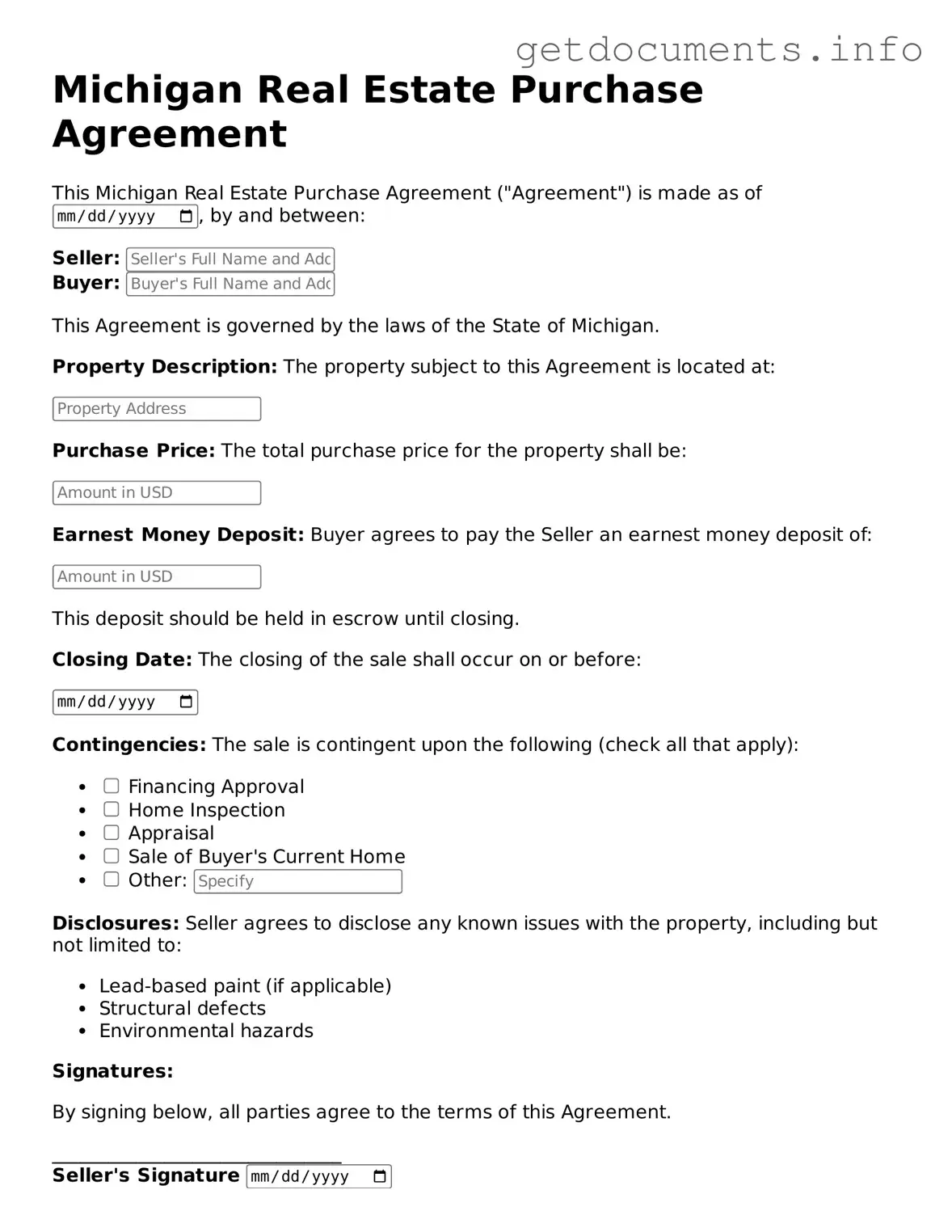Free Real Estate Purchase Agreement Template for Michigan
The Michigan Real Estate Purchase Agreement is a legal document used to outline the terms and conditions of a real estate transaction in Michigan. This form serves as a binding contract between the buyer and seller, detailing essential information such as the purchase price, property description, and closing date. Understanding this agreement is crucial for anyone involved in buying or selling property in the state.
Ready to get started? Fill out the form by clicking the button below.
Access Real Estate Purchase Agreement Editor

Free Real Estate Purchase Agreement Template for Michigan
Access Real Estate Purchase Agreement Editor
Got places to be? Complete the form fast
Fill out Real Estate Purchase Agreement online and avoid printing or scanning.
Access Real Estate Purchase Agreement Editor
or
⇩ PDF File
